Doctoral Programmes
NIAS Annual Student Colloquium – 5th to 7th January 2026 Click Here...
Course plan_Second Semester_January-May 2026. Click Here...
Course Schedule_Second Semester_January-May 2026. Click Here...
ABOUT THE NIAS DOCTORAL PROGRAMME
The National Institute of Advanced Studies (NIAS) was conceived and established in 1988 by the vision and initiative of the late Mr. J.R.D. Tata, primarily to nurture a broad base of scholars, managers, and leaders to address complex and important challenges faced by society through interdisciplinary approaches, as well as to conduct advanced multidisciplinary research in areas of the humanities, social sciences, natural sciences and engineering, as well as in conflict and security studies. The Institute promotes trans-disciplinary research and builds synergy within and across disciplines with meaningful interactions. NIAS has been recognised as an “Institute of Exceptional Repute” by the NITI Aayog.
NIAS is looking for exceptionally motivated students, interested in pursuing interdisciplinary research. Unencumbered by the constraints of traditional disciplinary doctoral research, NIAS doctoral students have a unique opportunity to broaden their intellectual horizons, even beyond the limits of the domains listed below. NIAS not only values such cross-pollination of ideas but encourages its students to develop interdisciplinary approaches.
The Institute is recognised by the Manipal Academy of Higher Education (MAHE); the University of Trans-Disciplinary Health Sciences and Technology (TDU); Defence Institute of Advanced Technology (DIAT), Pune; and National Maritime University (NMU), Chennai for the scholars to receive their Doctoral Degrees.
REGULAR DOCTORAL PROGRAMME
Eligibility
- A postgraduate degree from a UGC-recognised educational institute in any relevant subject with a minimum of 55% marks or its equivalent grade B in the UGC 7-point scale in the aggregate.
- However, Manipal Academy for Higher Education (MAHE), one of the universities NIAS is affiliated with, has the eligibility criteria of 60% marks or its equivalent grades at the Master level for the PhD admission.
- There is a relaxation of 5% of marks (or an equivalent relaxation of grade) for those belonging to SC, ST, or differently abled categories.
EXECUTIVE DOCTORAL PROGRAMME
Eligibility
- In-service personnel interested in career advancement and to orient their professional experiences toward academic research are encouraged to apply.
- A postgraduate degree from a UGC-recognised educational institute in any relevant subject with a minimum of 55% marks or its equivalent grade B in the UGC 7-point scale in the aggregate.
- However, Manipal Academy for Higher Education (MAHE), one of the universities NIAS is affiliated with, has the eligibility criteria of 60% marks or its equivalent grades at the Master level for the PhD admission.
- There is a relaxation of 5% of marks (or an equivalent relaxation of grade), for those belonging to SC, ST, or differently abled categories.
Admission Fees
For the admission fees and other procedural details, the applicants are encouraged to contact NIAS at niasphd@nias.res.in
SELECTION PROCEDURE
Admission to the NIAS Regular Doctoral Programme will be based on a common online written test and two rounds of interviews. Candidates who have successfully passed the CSIR / DST INSPIRE / UGC NET examination, with an assured junior research fellowship, are exempted from the online written examination although they must pass the two rounds of interviews.
Admission to the NIAS Executive Doctoral Programme will be based on an online test and two rounds of interviews.
HOW TO APPLY
Applications will only be accepted online. All application details are provided at: https://www.nias.res.in
The deadline for receiving online applications, with all required documents, as specified in the above website, is 25 May 2025
Applicants are advised to visit the NIAS website (https:/www.nias.res.in) for more information on the institute faculty and their research interests.
Facilities at NIAS
Library:
The main objective of the NIAS library has been to develop a well-balanced collection of books across disciplines in which our faculty are actively engaged in research. The collection is liberal in scope but selective in titles with an emphasis on acquisition relevant to interdisciplinary research, the Institute doctoral programme, and courses conducted by the Institute. Efforts have been made to acquire basic textbooks, seminal works, reference books, journal subscriptions, reports, and databases, as well as to identify gaps in the disciplines, which are not yet adequately represented, and thus consolidating its collection uniformly across all disciplines. Subscriptions to more than 2000 electronic journals from major publishers such as OUP, CUP, Taylor and Francis, Wiley and Sage have been provided. Subscriptions to archives and databases include JSTOR and IndiaStat.Com (in the field of education).
The facilities in the library include two linux servers, one windows server connected to five computer terminals using thin client technology for browsing with high-speed Internet connection, and one network printer and copier machine. The library uses KOHA software for housekeeping operations. The catalog of books is available on the web. An institutional repository containing research output of NIAS faculty and students is available on the web.
Hostel and Canteen Facilities:
Limited hostel seats are available on the NIAS Campus for women during Doctoral Programme at NIAS. The allocation will be subject to availability. The hostels are equipped with common facilities such as TV and washing machine. Students can avail of the NIAS canteen facility for lunch, Monday through Friday on a monthly payment basis.
Contact:
Dr. Anshuman Behera
Head, Academics
NIAS Doctoral Programme
National Institute of Advanced Studies
Indian Institute of Science Campus
Bengaluru-560012.
Tele: 080 2218 5137/5000
Fax: 080 22185028
Email: niasphd@nias.res.in
URL: https://www.nias.res.in

Guide: Sindhu Radhakrishna
Programme: Animal Behaviour and Cognition
School: School of Natural Sciences and Engineering
Title of Thesis: Distribution and Ecology of Scaly Anteaters in India Brief Description of Thesis:

Guide: M B Rajani
Programme: Heritage Science and Society
School: School of Humanities
Title of Thesis: Settlement Archaeology of Kutch Harappan using Geospatial AnalysisBrief Description of Thesis:

Guide: Shivali Tukdeo
Programme: Education
School: School of Social Sciences
Title of Thesis: Life and Learning on the Move: A Study of Murshidabad–Perumbavoor Migration Corridor and Family Strategies for EducationBrief Description of Thesis:

Guide: D Suba Chandran
Programme: Science, Technology and International Relations
School: School of Conflict and Security Studies
Title of Thesis: Climate Change and the Himalayas: A Case for Regional GovernanceBrief Description of Thesis:

Guide: Nithin Nagaraj
Programme: Complex Systems
School: School of Natural Sciences and Engineering
Title of Thesis: Recursion, Dynamics and Causality: Topics in Model AnalysisBrief Description of Thesis:

Guide: Anant Kamath
Programme: Inequality and Human Development
School: School of Social Sciences
Title of Thesis: Examining the Heteronoramtivity in Indian Education: Perspectives from the Transgender CommunityBrief Description of Thesis:

Guide: V V BinoyProgramme:
School: School of Natural Sciences and Engineering
Title of Thesis: Impact of Citizen Science Engagement on Participants’ Scientific Knowledge, Scientific Sense making and Trust in ScienceBrief Description of Thesis:

Guide: D Suba Chandran
Programme: Science, Technology and International Relations
School: School of Conflict and Security Studies
Title of Thesis: Political Economy of External Public Debt of PakistanBrief Description of Thesis:

Guide: Tejal Kanitkar
Programme: Energy, Environment and Climate Change
School: School of Natural Sciences and Engineering
Title of Thesis: Exploring the Various Axes of Equity in Climate ChangeBrief Description of Thesis:

Guide: Anindya Sinha
Programme: Animal Behaviour and Cognition
School: School of Natural Sciences and Engineering
Title of Thesis: The Arthropod City: Taxonomic and Functional Diversity of Ant and Spider Species Assemblages across an Urban Gradient in Guwahati, Assam, Northeastern IndiaBrief Description of Thesis:

Guide: Anindya Sinha
Programme: Animal Behaviour and Cognition
School: School of Natural Sciences and Engineering
Title of Thesis: Rethinking the Urban ‘Wild’ Animal: Ethnologies and Ethnographies of Nonhuman Primates in Indian CitiesBrief Description of Thesis:

Guide: Smriti Haricharan
Programme: Heritage Science and Society
School: School of Humanities
Title of Thesis: Reverberations of Cilapatikaram and the Worship of Kannaki in Caste, Gender and Regional Identities of Kerala and TamilnaduBrief Description of Thesis:

Guide: Aleena SebastianProgramme:
School: School of Social Sciences
Title of Thesis: Women in Matrilineal Societies of MeghalayaBrief Description of Thesis:

Guide: Jeebanlata Salam
Programme: Education
School: School of Social Sciences
Title of Thesis: Social Exclusion and Ghettoisation of Manual Scavengers in Coimbatore City: The Case of Arunthathiyar CommunityBrief Description of Thesis:

Guide: D Suba Chandran
Programme: International Strategic and Security Studies
School: School of Conflict and Security Studies
Title of Thesis: Role of Religion in Contemporary Nation-Building: A Case Study of Sri Lanka, Myanmar, and ThailandBrief Description of Thesis:

Guide: Chetan Choithani
Programme: Inequality and Human Development
School: School of Social Sciences
Title of Thesis: Negotiating for Space: Violence, Segregation and Urban Social Movements in Contemporary IndiaBrief Description of Thesis:

Guide: Shivali TukdeoProgramme:
School: School of Social SciencesTitle of Thesis: Brief Description of Thesis:
Guide: Sindhu Radhakrishna
Programme: Animal Behaviour and Cognition
School: School of Natural Sciences and Engineering
Title of Thesis: Ecological Flexibility and Gut Microbial Dynamics in the Gray Slender Loris Loris LydekkerianusBrief Description of Thesis:

Guide: Sindhu Radhakrishna
Programme: Animal Behaviour and Cognition
School: School of Natural Sciences and Engineering
Title of Thesis: From Wild to Vermin: A Study on Human–Wild Pig Conflict in IndiaBrief Description of Thesis:

Guide: V V BinoyProgramme:
School: School of Natural Sciences and Engineering
Title of Thesis: The Study on Freshwater Resources Conservation.Brief Description of Thesis:

Guide: Aleena Sebastian
Programme: Urban and Mobility Studies
School: School of Social Sciences
Title of Thesis: Transnational Migration and Motherhood: A Study of Experiences of Malayali Nurses in the Gulf CountriesBrief Description of Thesis:
Guide: Narendar Pani
Programme: Inequality and Human Development
School: School of Social Sciences
Title of Thesis: Patterns of Response to Inequality in Relation to the Development Process: A Study of Two Villages in Gujarat and KeralaBrief Description of Thesis:

Guide: Anshuman Behera
Programme: Conflict Resolution and Peace Research
School: School of Conflict and Security Studies
Title of Thesis: Ethnic Identities and Conflicts: The Case of Kuki and Naga Conflict in Manipur 1992-2020Brief Description of Thesis:

Guide: Deepti Navaratna
Programme: Heritage Science and Society
School: School of Humanities
Title of Thesis: Deconstructing Choreography in Performances of the Nāṭya Tradition: A Practical Criticism in the Context of Indian AestheticsBrief Description of Thesis:

Guide: Shalini Dixit
Programme: Education
School: School of Social Sciences
Title of Thesis: Understanding the Experience of 'Psychotherapy' Among Sexual and Gender Minorities in IndiaBrief Description of Thesis:

Guide: D Suba Chandran
Programme: Science, Technology and International Relations
School: School of Conflict and Security Studies
Title of Thesis: Militarisation in Outer Space: Case studies of India, France, and Japan
Brief Description of Thesis:
The thesis takes an international relations and security studies approach of the increasing relevance of Outer Space in the security structure of governments. Many military activities and strategies rely on space-based assets and states are seen increasingly developing technologies that would aid in enhancing their military. This thesis aims to map the changing trends in outer space from being a domain for “peaceful purposes,” to being considered as a sector for a state’s “active defence” activities. Three countries, India, France, and Japan have been considered as cases, keeping in mind that they are non-big powers in outer space who also display the shift from peaceful uses to uses for their security benefit or for "defensive" capabilities.

Guide: V V Binoy
Programme: Animal Behaviour and Cognition
School: School of Natural Sciences and Engineering
Title of Thesis: Landslide Risk Perception Communication in Kerala, India: Understanding Public Awareness and Community Response Strategies Brief Description of Thesis:

Guide: Nithin Nagaraj
Programme: Complex Systems
School: School of Natural Sciences and Engineering
Title of Thesis: Defending System IntegrityBrief Description of Thesis:

Guide: Aleena Sebastian
Programme: Urban and Mobility Studies
School: School of Social Sciences
Title of Thesis: Rethinking Human-Wildlife interface from a Feminist Political Ecology Approach: A Study of Three Communities in Assam, North-Eastern IndiaBrief Description of Thesis:

Guide: Anshuman Behera
Programme: Conflict Resolution and Peace Research
School: School of Conflict and Security Studies
Title of Thesis: Discursive Formulations of Violence in Ethnic Conflict: Generation and Transmission of ValuesBrief Description of Thesis:

Guide: Anshuman Behera
Programme: Conflict Resolution and Peace Research
School: School of Conflict and Security Studies
Title of Thesis: Contours of Conflict: Exploring Dynamics of Development and Democracy in India.Brief Description of Thesis:
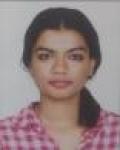
Guide: Tejal Kanitkar
Programme: Energy, Environment and Climate Change
School: School of Natural Sciences and Engineering
Title of Thesis: Energy Dependence and Just Transitions: A Study of Developing and Developed CountriesBrief Description of Thesis:

Guide: Anant Kamath
Programme: Inequality and Human Development
School: School of Social Sciences
Title of Thesis: Tracing the Digital Transformation of Education Governance: India as a Case Study Brief Description of Thesis:
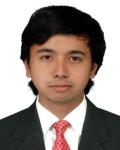
Guide: Aleena Sebastian
Programme: Urban and Mobility Studies
School: School of Social Sciences
Title of Thesis: In the Shadows of Fetishization: Examining the Intersections of Race, Desire, and Masculinities in the Lives of Migrant Queer Men from North-East IndiaBrief Description of Thesis:

Guide: Rudrodip Majumdar
Programme: Animal Behaviour and Cognition
School: School of Natural Sciences and Engineering
Title of Thesis: Living with the Enemy? Parasite Networks in Alloprimate Communities in the Lowland Rainforest Fragments of the Upper Brahmaputra Valley, Assam, IndiaBrief Description of Thesis:

Guide: Rudrodip Majumdar
Programme: Energy, Environment and Climate Change
School: School of Natural Sciences and Engineering
Title of Thesis: Energy Transition Pathway for the Indian Road Transport SectorBrief Description of Thesis:

Guide: D Suba Chandran
Programme: Science, Technology and International Relations
School: School of Conflict and Security Studies
Title of Thesis: Technology and International Relations: A Case Study of Cyberspace and Artificial IntelligenceBrief Description of Thesis:

Guide: V V BinoyProgramme:
School: School of Natural Sciences and Engineering
Title of Thesis: Out of Sight, Out of Mind: Communicating Mahseer Conservation for Positive Behaviour ChangeBrief Description of Thesis:

Guide: Anshuman Behera
Programme: Conflict Resolution and Peace Research
School: School of Conflict and Security StudiesTitle of Thesis: Brief Description of Thesis:

Guide: Chetan ChoithaniProgramme:
School: School of Social Sciences
Title of Thesis: Understanding Immobility in the Context of Climate Change: A Mixed - Methods Study of Dhanushkodi Fisherfolk.Brief Description of Thesis:

Guide: Srikumar M Menon
Programme: Heritage Science and Society
School: School of Humanities
Title of Thesis: The Influence of External Temple-Building Traditions on the Indigenous Laterite-Timber Tradition on the West Coast of IndiaBrief Description of Thesis:
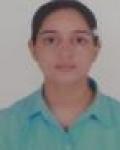
Guide: Shalini Dixit
Programme: Education
School: School of Social Sciences
Title of Thesis: Collective Memory and Social Identity: A Study of Denotified Tribes in RajasthanBrief Description of Thesis:

Guide: Jeebanlata Salam
Programme: Education
School: School of Social Sciences
Title of Thesis: Symbolic Violence in Schools and its Impact on the Social Identity and Aspiration of StudentsBrief Description of Thesis:

Guide: Sangeetha Menon
Programme: Consciousness Studies
School: School of Humanities
Title of Thesis: Parāsamvit and Pratyabhijñā: An Onto-Epistemic Enquiry in Kashmir ShaivismBrief Description of Thesis:

Guide: Anshuman Behera
Programme: Conflict Resolution and Peace Research
School: School of Conflict and Security Studies
Title of Thesis: Interrogating Security Situations in Jammu and Kashmir: A Human Security Perspective Brief Description of Thesis:

Guide: Rudrodip Majumdar
Programme: Energy, Environment and Climate Change
School: School of Natural Sciences and EngineeringTitle of Thesis: Brief Description of Thesis:

Guide: Deepti Navaratna
Programme: Heritage Science and Society
School: School of Humanities
Title of Thesis: Understanding religious transmission in the Varkari Sampradaya: A cognitive ApproachBrief Description of Thesis:

Guide: M B Rajani
Programme: Heritage Science and Society
School: School of Humanities
Title of Thesis: Early Fusion Music: Cross-Cultural Musical Exchanges in Colonial India from the Late 18th to the Early 20th CenturyBrief Description of Thesis:

Guide: Sangeetha Menon
Programme: Consciousness Studies
School: School of Humanities
Title of Thesis: Situating the Correlates of Wellbeing through an Ayurvedic Approach to the Concepts of Consciousness, Self and Life-PurposeBrief Description of Thesis:

Guide: Anshuman Behera
Programme: Conflict Resolution and Peace Research
School: School of Conflict and Security Studies
Title of Thesis: Structural violence, Social suffering and Subjectivity: A study of the lived experiences of migrant workers from GanjamBrief Description of Thesis:

Guide: D Suba Chandran
Programme: Science, Technology and International Relations
School: School of Conflict and Security Studies
Title of Thesis: Arctic Governance: The Role of Institutions with Special Reference to the Arctic Council, Saami Council and Arctic CircleBrief Description of Thesis:
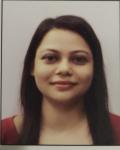
Guide: D Suba Chandran
Programme: Science, Technology and International Relations
School: School of Conflict and Security Studies
Title of Thesis: The idea of Ocean Governance and the High Seas Treaty Brief Description of Thesis:

Guide: Deepti NavaratnaProgramme:
School: School of Humanities
Title of Thesis: The Impact of yoga on cognitive function and physiological well-beingBrief Description of Thesis:

Guide: Sharada SrinivasanProgramme:
School: School of HumanitiesTitle of Thesis: Brief Description of Thesis:

Guide: Anitha Kurup
Programme: Education
School: School of Social Sciences
Title of Thesis: Understanding Practices Related to Menstrual Health among Women in RajasthanBrief Description of Thesis:

Guide: Srikumar M Menon
Programme: Heritage Science and Society
School: School of Humanities
Title of Thesis: Relationship between Rural Settlements and Urban Centres of Harappan CivilizationBrief Description of Thesis:
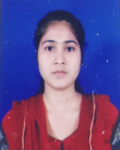
Guide: M B Rajani
Programme: Heritage Science and Society
School: School of Humanities
Title of Thesis: Landscape Archeaology of Cultural Heritage Sites in Coastal Odisha: A Geospatial AnalysisBrief Description of Thesis:
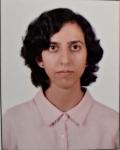
Guide: Srikumar M MenonProgramme:
School: School of Humanities
Title of Thesis: Performing Writing: Exploring Space, Memory and Genre Construction using Autofiction and Autotheory in Select Texts by WomenBrief Description of Thesis:

Guide: Anshuman Behera
Programme: Conflict Resolution and Peace Research
School: School of Conflict and Security Studies
Title of Thesis: Towards Integrated Impact Assessment Studies: Interrogating the impacts of Char Dham Project in Uttarakhand.Brief Description of Thesis:

Guide: R Srikanth
Programme: Energy, Environment and Climate Change
School: School of Natural Sciences and Engineering
Title of Thesis: Consolidation of Laws Related to Environment Protection in Surface Coal Mining in India: Prospects and ChallengesBrief Description of Thesis:
Guide: Anindya Sinha
Programme: Animal Behaviour and Cognition
School: School of Natural Sciences and Engineering
Title of Thesis: Encountering More-than-Human Lifeworlds: Behavioural and Political Ecologies of Human–Elephant Relations in Northeast IndiaBrief Description of Thesis:
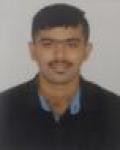
Guide: Anitha Kurup
Programme: Education
School: School of Social Sciences
Title of Thesis: Higher Education as a Site of Investments: A Case Study of Institutions run by Lingayat and Veerashaiva Mathas in KarnatakaBrief Description of Thesis:

Guide: M B Rajani
Programme: Heritage Science and Society
School: School of Humanities
Title of Thesis: A Study of Military History and Heritage in Mewar region, RajasthanBrief Description of Thesis:

Guide: Anindya Sinha
Programme: Animal Behaviour and Cognition
School: School of Natural Sciences and Engineering
Title of Thesis: Of Cash Cows and Piggy Banks? Natures, Cultures and Politics of the Cultivated Animal in Urban IndiaBrief Description of Thesis:

Guide: Shivali Tukdeo
Programme: Education
School: School of Social Sciences
Title of Thesis: The Many Meanings of Work in Bengaluru’s Schools: Histories, Cultures and PracticesBrief Description of Thesis:

Guide: Anindya Sinha
Programme: Animal Behaviour and Cognition
School: School of Natural Sciences and Engineering
Title of Thesis: A Tail of Two Cities: Ecological, Socioeconomic and Political Dynamics of Human-Dog Relations in Urban IndiaBrief Description of Thesis:

Guide: Anindya Sinha
Programme: Animal Behaviour and Cognition
School: School of Natural Sciences and Engineering
Title of Thesis: Life at the Urban Margins: Human-Animal Relations and Precarity in Indian CitiesBrief Description of Thesis:

Guide: Anitha Kurup
Programme: Education
School: School of Social Sciences
Title of Thesis: Role of Mythology in the Learning and Identity Formation among Adolescents: A Study of Two Schools in West BengalBrief Description of Thesis:

Guide: V V Binoy
Programme: Animal Behaviour and Cognition
School: School of Natural Sciences and Engineering
Title of Thesis: Determinants of the Protective Action Decision Making during Floods and Cyclones: A Study of KeralaBrief Description of Thesis:

School: School of HumanitiesTitle of Thesis: Brief Description of Thesis:
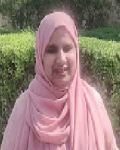
Guide: Tejal KanitkarProgramme:
School: School of Natural Sciences and Engineering
Title of Thesis: Climate change Governance: Synergies and Contradictions between the Global, the National, and the LocalBrief Description of Thesis:

Guide: Anitha Kurup
Programme: Education
School: School of Social Sciences
Title of Thesis: Traveling through the Portals of Engineering Colleges: Experiences of Dalit Girls in IndiaBrief Description of Thesis:

Guide: Jeebanlata Salam
Programme: Education
School: School of Social Sciences
Title of Thesis: The “Self” in Classrooms – Exploring Identities through Narratives from Teaching of Social SciencesBrief Description of Thesis:

Guide: M B Rajani
Programme: Animal Behaviour and Cognition
School: School of Natural Sciences and Engineering
Title of Thesis: The Mountain Primates: Distribution, Ecology and Human – Relationships of the Macaques of the Eastern Himalayas, Arunachal Pradesh, North-eastern IndiaBrief Description of Thesis:

Guide: Prakash Panneerselvam
Programme: International Strategic and Security Studies
School: School of Conflict and Security Studies
Title of Thesis: Conceptualizing and Assessing Political Salience of the United Nations’ Role in Addressing Climate Security DiscourseBrief Description of Thesis:

Guide: Jeebanlata Salam
Programme: Education
School: School of Social Sciences
Title of Thesis: Aspiration and Higher Education among the OBCs: A Study among the Thiyyas and VannathanBrief Description of Thesis:

Guide: Prakash Panneerselvam
Programme: International Strategic and Security Studies
School: School of Conflict and Security Studies
Title of Thesis: Assessing Chinese Maritime Diplomacy in Southeast Asia from 2012-2022Brief Description of Thesis:

Guide: Anant KamathProgramme:
School: School of Social Sciences
Title of Thesis: Youth, Sport and Urban SpacesBrief Description of Thesis:
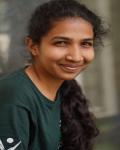
Guide: Anindya Sinha
Programme: Animal Behaviour and Cognition
School: School of Natural Sciences and Engineering
Title of Thesis: Primate Worlds: Demographic Structure and Dynamics, Social Networks and Life-History Strategies in Wild Bonnet Macaques Brief Description of Thesis:

|
PUBLIC VIVA-VOCE EXAMINATION Forest in the City: Contested Informal Settlements on the Hills of Guwahati Snehashish Mitra, School of Social Sciences Doctoral Programmes Programme Lecture Hall, NIAS 6 Apr 2023, 11:00 hrs |
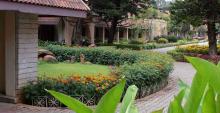
|
NIAS PhD Defence Development Policy as a Social Process: A Case Study of Niranthara Jyothy in Karnataka Meera Sudhakar, Doctoral Student, School of Social Sciences Doctoral Programmes Programme Conference Hall-II 19 July 2022 |
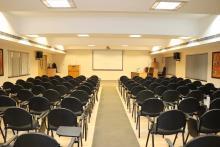
|
NIAS PhD: Open Defence of Thesis Beyond the Protected Built Heritage Sites: A geospatial study of Malaprabha River Valley Doctoral Programmes Programme NIAS Lecture Hall 29 June 2022, Wednesday, 1130 hrs |
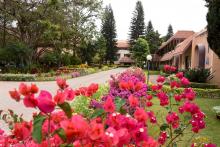
|
Final Colloquim Monkey on a Hot Tin Roof: Ecological and Behavioural Adaptations of Lion-Tailed Macaques to a Rainforest–Anthropogenic Habitat Matrix in the Western Ghats Mountains of Southern India Ashni Kumar Dhawale NIAS Doctoral Programme 24 January 2022 |
| NIAS Open Defense of Thesis Aspirational Labour and Self-Making: A Study of Retail Workers in Delhi Malls Prof. Carol Upadhya NIAS Doctoral Programme Virtual Meeting 20 December 2021 |
|
| Open Defence of Thesis Scientific, Technological and Gendered relations: An Ethnographic Study of Women Scientist, Engineers and Factory Workers Ms. Cheshta Arora NIAS Doctoral Programme Microsoft Teams Presentation 26 October 2021 |
Disputes in the maritime domain are almost as old as the history of the civilizations. Ever since the Hittites used their navy to defeat the kingdom of Alashiya in 1275 BC, the history of the maritime domain has added conflicts in its realm. Added to this inheritance of conflicts, the higher consumption rate of the world due to an increased population, its dwindling natural resources, slow economic growth, environmental challenges, and several associated reasons are all hastening the approach towards the ocean’s resources for sustenance. This sustenance would require replenishment of its economic and consumable resources. Here, the maritime contribution constitutes around 5 percent GDP of the total world economy. The global trade shipment estimates have reached 80 to 90 percent by volume and 70 percent by value. The maritime industry is worth trillions of dollars and supports more than 30 million active employments and more than 350 million lives. These figures will increase in the upcoming decades. Under the above-mentioned conditions, the pursuit to secure interests and resources from the maritime source would become paramount. It would lead to competition and conflicts. Such competitive pursuits for resources would add to the legacy of disputes from historical to concurrent sources to become the primary raison d'être for (maritime) conflicts soon. Geography and geopolitics play a decisive role in the protraction and settlement of such disputes. The use of GIS to map all earthly activities acquires multiple dimensions’ maritime activities. The integration of geospatial technology in the realm of Maritime Studies provides a scope for understanding, analyzing and presenting the fast-changing dimensions of modern-day maritime environment. This course gives fundamental knowledge and orientation for integrating Maritime (Security) Studies and GIS.
Course Objectives and Outcomes:
The class would focus on applying principles of GIS and remote sensing techniques to the maritime domain with an academic perspective. It will enable scholars to learn and understand the basics of maritime concepts and the applications of Geographic Information System in this domain. Knowledge and understanding of GIS, spatial data, raster, and vector data models for maritime domains will be delivered.
Course Pre-Requisites:
Interest in maritime studies and some elementary ideas about world history would be beneficial. Online reference material and other notes shall be provided by the Course Instructor, as per requirement. Familiarity with GIS would be beneficial, though not compulsory. Dexterity in the use of computers is essential. For GIS, free and open-source software and data will be used. Access to personal PC / laptop for practical exercises is essential.
Course Structure:
Module I. Maritime (Security) Studies Concepts: An Introduction
Module II. Practical GIS Lessons, using Open-Source GIS Tools
Course Evaluation:
In class participation: 50%
Project work: 40%
Class assignments: 10%
Reference Materials / General Readings:
1. Dwain D Wright, Under Sea with GIS, ESRI Publications, 2002
2. Joe Breman, Marine Geography: GIS for the Oceans and Seas, ESRI Publications, 2002
3. Jacek Zaucha, Jacek and Kira Gee (eds.), Maritime Spatial Planning: Past, Present, Future, Springer Nature, Cham, 2019
4. James Kraska, Contemporary Maritime Piracy: International Law, Strategy, and Diplomacy at Sea, Praeger Publications, 2011
5. Min Gyo Koo, Island Disputes and Maritime Regime Building in East Asia: Between a Rock and a Hard Place, Springer-Verlag, New York, 2010
6. Maximo Q. Mejia Jr., Chie Kojima, Mark Sawyer (eds.), Piracy at Sea, Springer-Verlag, Berlin and Heidelberg, 2013
7. Geoffrey Till, Sea power: A Guide for the Twenty-First Century, Routledge, Oxfordshire, UK, 2009
8. K Sridharan, A Maritime History of India, Ministry of Information and Broadcasting, Government of India, 1965
9. Christian Le Mière, Maritime Diplomacy in the 21st Century: Drivers and Challenges, Routledge, Oxfordshire, UK, 2014
10. Committee on Environmental Information For Naval Use, Environmental Information for Naval Warfare, National Research Council, Ocean Studies Board, Division on Earth and Life Studies, National Research Council of the National Academies, National Academies Press, Washington, D.C., 2003
11. Carolin Liss, Oceans of Crime: Maritime Piracy and Transnational Security in Southeast Asia and Bangladesh, Institute of Southeast Asian Studies, Singapore, 2010
12. Palanisamy Shanmugam A., Theenathayalan Varunan, S. N. Nagendra Jaiganesh, Arvind Sahay, Prakash Chauhan, Optical Assessment of Colored Dissolved Organic Matter and its Related Parameters in Dynamic Coastal Water Systems, Estuarine, Coastal and Shelf Science, 175, 126–145, 2016
13. Steve Chan, China's Troubled Waters: Maritime Disputes in Theoretical Perspective, Cambridge University Press, Cambridge, 201
The Sustainable Development Goals (SDGs) are a set of 17 global goals, with 169 specific targets meant to provide the blueprint for achieving sustainable development. As progressional heirs to the United Nations (UN) Millennium Development Goals, the SDGs came into force in 2016 and are being pursued with differential success rates. The present “primer” course aims to provide a background to understand the SDGs and their targets. The main objective is to understand the SDG framework through which the social, economic, and environmental dimensions of human development can be integrated with the natural resources. The elective course would hence provide a means for diverse streams of researchers to understand the SDGs from the perspective of the existing global issues, and the need for scientific monitoring efforts to support the achievement of the targets apart from exploring the relevance of the SDGs to their research.
Course Evaluation: One mid-semester quiz (50%) and one end-term paper (50%)
Course Readings:
1. Sustainable Development Goals for Society Vol. 1, Editors: Godwell Nhamo, Muchaiteyi Togo, Kaitano Dube, Hardcover ISBN : 978-3-030-70947-1; Softcover ISBN : 978-3-030- 70950-1; eBook ISBN : 978-3-030-70948-8, Series ISSN 2523-3084; Edition Number 1, Number of Pages XXII, 301. DOI https://doi.org/10.1007/978-3-030-70948-8
2. Sustainable Development Goals for Society Vol. 2, Editors: Godwell Nhamo, Muchaiteyi Togo, Kaitano Dube, Hardcover ISBN : 978-3-030-70951-8; Softcover ISBN : 978-3-030-70954-9; eBook ISBN : 978-3-030-70952-5, Series ISSN 2523-3084; Edition Number 1, Number of Pages XXIII, 312. DOI https://doi.org/10.1007/978-3-030-70952-5
3. https://www.un.org/development/desa/dspd/2030agenda-sdgs.html
4.http://mospi.nic.in/sites/default/files/publication_reports/SDG-NIF- Progress2021_March%2031.pdf
Module I: Basics of Energy Systems (three lectures, six contact hours)
Principles of Conservation of Energy and Demonstration of Concept through Practical Systems General Philosophy of Energy Systems: Components and System Architecture
Module II: Advanced Baseload Generation Pathways (three lectures, six contact hours) High Efficiency Conventional Energy Conversion Systems, Ultra Supercritical (USC) and
Advanced Ultra-Supercritical (AUSC) Thermal Power Plants, Integrated Gasification Combined Cycles (IGCC)
Seminar I: Evaluation of Students (One lecture, 2 h)
Module III: Hybrid and Futuristic Energy Systems (four lectures, eight contact hours) Solar–Wind Hybrid Systems
Coal–Concentrated Solar Power (CSP) Hybrid Systems Nuclear–Variable Renewable Energy (Solar) Hybrid Systems
a) Nuclear Power Plant (NPP) with Arrangement of Green Hydrogen Production
b) Cost Comparisons between Green, Blue and Grey Hydrogen Generation Pathways Seminar II: Evaluation of Students (One lecture, 2 h)
Module IV: Economics and Implications of Advanced Energy Systems (four lectures, eight contact hours)
Economics and Implications of Advanced Energy Systems
Costs associated with Decommissioning of Coal-based Power Plants Reuse and Recycling of Materials Discarded from Energy Installations
Final Examination
Course Readings:
-
Hydrogen Production and Distribution, Alternative Fuels Data Center https://afdc.energy.gov/fuels/hydrogen_production.html
-
Grey, blue, green – why are there so many colours of hydrogen? https://www.weforum.org/agenda/2021/07/clean-energy-green-hydrogen/
-
Gabrielli et al. (2020) The Role of Carbon Capture and Utilization, Carbon Capture and Storage, and Biomass to Enable a Net-Zero-CO2 Emissions Chemical Industry. https://pubs.acs.org/doi/10.1021/acs.iecr.9b06579
-
Could Hydrogen Help Save Nuclear? https://www.energy.gov/ne/articles/could-hydrogen- help-save-nuclear
Course Objectives:
-
To introduce the concepts and developments in relation to identity and culture
-
To explore the process of formation of social, psychological and gender identities among adolescents
-
To understand the inter-relation of formal education, identity, culture.
-
To analyze the role of schooling on identity formation among marginalized groups
-
To explore the role of the hidden curriculum in developing identity of adolescent children in school
Course Outline:
The course will explore current research work in relation to identity formation among adolescents from a sociological and psychological perspective. Theoretical frameworks used to study identity among adolescents will be critically evaluated to formulate a robust framework to study adolescents' identity.
The role of family, community, and school in fostering identities among adolescents will be examined to understand the children's experiences as they negotiate their own identities. In the process, the course will explore the analytical tools used to study student identity among marginalized communities.
Select References:
Baysu, Gulseli, Karen Phalet and Rupert Brown. (2011). Dual Identity as a Two-Edged Sword: Identity Threat and Minority School Performance. Social Psychology Quarterly. American Sociological Association.
Gracia, Gina A. (2017). Defined by Outcomes or Culture? Constructing an Organizational Identity for Hispanic Serving Institutions. American Educational Research Journal. American Educational Research Journal.
Lall, Marie. (2021). Ethnic education: Language and local curriculum issues. Myanmar’s Education Reforms: A pathway to social justice. UCL Press.
Langer-Osuna, Jennifer M. and Na’ilah Suad Nasir. (2016). Rehumanizing the “Other”: Race, Culture, and Identity in Education Research. Review of Research in Education. American Educational Researh Association.
Levitan, Joseph and Davin Carr-Chellman. (2018). Learning, Selfhood, and Pragmatic Identity Theory. The Journal of Educational Thought. Werklund School of Education, University of Calgary.
Nagel, Joane. (1994). Constructing Ethnicity: Creating and Recreating Ethnic Identity and Culture. Social Problems. Oxford University Press on behalf of the Society for the study of Social Problems.
Rogers, Leoandra Onnie, Marc A. Scott and Niobe Way. (2015). Racial and Gender Identity Among Black Adolescent Males: An Intersectionality Perspective. Child Development. Wiley on behalf of the Society for Research in Child Development.
Vaghela, Preeti and Koji Ueno. (2017). Racial-ethnic Identity Pairings and Mental Health of Second-generation Asian Adolescents. Sociological Perspectives. Sage Publications, Inc.
Verhoeven, Monique, Astrid M. G. Poorthuis and Monique Volman. (2018).The Role of School in Adolescents’ Identity Development. A literature Review. Educational Psychology Review.
This course familiarizes the students with the central role of technology in development and technological change as a controlled, evolving, and often socially constructed process.
The role of technology and technological change in human development and well-being cannot be understated. This is not restricted to only local, regional, and national contexts, but also as enshrined in broader targets such as the Millennium Development Goals. However, technology and technological change are not straightforward but complex processes, often deeply embedded in sociological processes. Social structures, social processes, power, norms and values, politics, culture, and so on, significantly influence processes of technological change and the nature of technology itself. This course understands these dynamics and individual/social decision-making processes around technology.
The entire course rests on two conceptual frameworks – (a) systems of innovation and (b) the social construction of technological systems. A recipient of this course will emerge as more informed on technology and technological processes contributing to scholarly research, development intervention, critique, commentary, and policy building on this area.
Units
The course is comprised of six broad units.
(1) Introduction and Basic Concepts: This introduces the role of technology and technological change in the development process and realizing development goals. We analyze the fundamental nature of technological change, including technological paradigms and trajectories, and see how it has evolved over time. Basic terms in technology studies are also introduced.
(2) The Systems of Innovation (SI) Approach: This unit introduces the first theoretical framework of this course – Systems of Innovation. We understand how innovation is a systemic process at national, regional, sectoral, and local levels; and who the actors and processes involved in technological change and innovation are. We also study technological infrastructure, and how innovation and diffusion are measured.
(3) The Diffusion of Innovations: In this unit, we understand how knowledge and technologies spread. We analyze the fundamentals of networks, the innovation-decision process, and attributes of the agents of diffusion. The importance of social networks in the diffusion and development process is a dominant issue in this unit.
(4) The Social Construction of Innovation and Diffusion: This unit presents the Social Construction of Technological Systems (SCOT) theory as the second core framework of this course. It demonstrates how sociological and cultural variables shape technologies and their diffusion. We also discuss the feminist understanding of technological change, and the lived experience of gender and technology.
(5) Technology and Inequality: This unit is about the relationship between technology and inequality in terms of its relationship to modernity, agency, technological inequalities, and mitigation of inequality.
(6) Innovation and Technological Change in India and the Developing World: The last module takes a vast sweep at critical themes such as building technological capabilities, the digital divide, innovation in the ‘South,’ and finally, innovation policy.
Course Assessment:
There are two assessments for this course.
The response paper component, where the student would be required to submit a critique of an important science, technology, innovation policy measure. This constitutes 40% of the total assessment and is conducted at the course's halfway point.
The term paper is a written assessment of about 2500 words. The objective here is to explore, disentangle, analyze, and understand the selected technology's institutional, diffusional, and contextual making (with the course instructor’s approval). This is an exercise in applying the concepts, perspectives, and tools discussed in this course conceptualizing technology. It, therefore, requires some theoretical reflection with the empirical and is a great opportunity to think creatively and “inter-disciplinarily” about what technology is. This constitutes 60% of the total assessment and is worked through the entire course, submitted at the end.
Course Readings:
Unit I: Introduction and Basic Concepts
1. David and Foray (2002) ‘An Introduction to the Economy of the Knowledge Society’, UNESCO, [pp.9-21]
2. UN Millennium Project (2005) Innovation: Applying Knowledge in Development, Task Force on Science, Technology, and Innovation, United Nations, [chap 2,3; pp.20-44]
Unit II: The Systems of Innovation (SI) Approach
1. Cowan, David, and Foray (2000) ‘The Explicit Economics of Knowledge Codification and Tacitness’, Industrial and Corporate Change, 9(2): 211-253
2. Edquist, C. (2005) ‘Systems of Innovation: Perspectives and Challenges’, in Fagerberg et al. (eds.)
Unit III: The Diffusion of Innovations
1. Rogers, E. (1995) The Diffusion of Innovations, The Free Press, Macmillan, New York, chapters 2 (pp.2-35), 4 (pp.136-157), 5 (pp.168-219) and 8 and 9 (excerpts)
2. Barabasi (2002) Linked: The New Science of Networks, Perseus
Unit IV: The Social Construction of Innovation and Technological Change
1. Bijker, W.E., and Pinch, T. (1987) ‘The Social Construction of Facts and Artifacts: Or How the Sociology of Science and the Sociology of Technology Might Benefit Each Other’, in Bijker et al. (eds.) The Social Construction of Technological Systems, The MIT Press, Cambridge, MA
2. Pfaffenberger, B. (1992) ‘Social Anthropology of Technology’, Annual Review of Anthropology, 21: 491-516
3. Schwartz Cowan, R. (1976) ‘The “Industrial Revolution” in the Home: Household Technology and Social Change in the 20th Century’, Technology and Culture, 17(1):1-23
4. Webster, F. (2006) Theories of the Information Society, Third Edition, Routledge, London and New York
Unit V: Technology and Inequality
1. Halford, S., and Savage, M. (2010) ‘Reconceptualising Digital Social Inequality’,
Information, Communication, and Society, 13(7): 937-955
2. Kamath, A. (2021) ‘A Technological Enquiry into Inequality,’ Working Paper NIAS/SSc/IHD/U/WP/11/2021, National Institute of Advanced Studies (NIAS), Bangalore
3. Qiu, J.L. (2009) Working-Class Network Society: Communication Technology and the Information Have-Less in Urban China, MIT Press, Cambridge MA, London
Unit VI: Innovation and Technological Change in India and the Developing World
4. Mani, S. (2009) ‘Has India become more Innovative since 1991? Analysis of Evidence and Some Disquieting Features’, Working Paper 415, Centre for Development Studies, Trivandrum
5. Nayyar, D. (2010), ‘Economic Growth and Technological Capabilities in BRICS’, in Fu and Soete (eds.) The Rise of Technological Power in the South, Palgrave [pp.49-67]
6. Fu and Soete (2010) ‘Introduction’, in Fu and Soete (eds.) The Rise of Technological Power in the South, Palgrave [pp.1-12]
This course offers a sociological reading of the key themes and perspectives in the classical and contemporary scholarship from the global and the South Asian context. Moving beyond a colonial and western imagination of the urban, this course examines urban processes in the non-west/third world/South Asian regions through its historical specificities. India's urban processes will be explored through a class, caste, gender, and sexuality perspective. It also brings under its purview the environmental issues, communal violence, displacement, patterns of migration, and the emergence of the middle class and the informal sector in contemporary India.
Course Date, Schedule and Duration: 12 January 2022; One lecture (2 h) per week, for 16 weeks; January–March 2022
Lecture Topics and Discussion:
The main topics of the lectures are as follows:
1. The Chicago School Tradition in urban sociology (Ernest Burgess, Robert Park, Louis Wirth, William Ogburn)
2. Key concepts and theories (Manuel Castells, David Harvey, Henry Lefebvre, Saskia Sassen)
3. The turn of new urban sociology
4. Colonialism, postcolonialism, decolonialism and urbanization in the third world
5. Indian urban experience and formation of Indian cities
6. Globalization, Indian cities, and the global women
7. The middle class in urban India
8. Popular culture and urban lifestyles
9. City, caste and communal assertions and violence
10. State, displacement, and urban politics
11. Changing patterns of migration and the rise of informal economy
12. Contemporary urban problems in India (water, housing, sanitation, and environmental perspectives)
13. Communities and marginalization in Indian cities (an intersectional perspective)
14. Urban planning: Key concerns
15. Urban policy and governance
16. Right to city and the new LGBTQ movements in India
Course Evaluation: One assignment and one examination
Course Readings:
1. Bhan, G. 2016. In the public’s interest: Evictions, citizenship, and inequality in contemporary Delhi. University of Georgia Press.
2. Castells, M. 2002. The Castells reader on cities and social theory. Edited by Ida Susser. Malden, MA: Blackwell Publishing Limited, 2002. ISBN: 9780631219330.
3. Castells, M. 1976. 'Is there an Urban Sociology?' in C.G.Pickvance (ed.) Urban Sociology. London: Methuen & Co. Ltd.
4. Gugler, J. 1996. World cities beyond the west. Issues, theory, and policy. New York: OUP.
5. Hansen, T. B. 2001. Urban violence in India. Identity, politics, 'Mumbai' and the postcolonial city. Delhi: Permanent Black.
6. Harvey, D. 1989 The Urban experience. Baltimore, John Hopkins Press
7. Jodhka, S., & Prakash, A. (eds). 2016. The Indian middle class. New Delhi: OUP.
8. Kundu, A. 2007. ‘Migration, employment status and poverty: An analysis across urban centres’, EPW.
9. Naidu, R. and J Kamalakar. 1988. 'Communal conflict in the Old City of Hyderabad'. Social Action, 38(4).
10. Naidu, Ratna. 2006. ‘Dilapidation and slum formation’, Chapter 9 in Urban Studies (ed. by Sujata Patel and Kushal Deb)
11. Nair, J. 2005. The Promise of the metropolis: Bangalore’s twentieth century, Delhi, Oxford
12. Narrian, A., & Bhan, G. (eds). 2006. Because I have a voice: Queer politics. New Delhi: Yoda Press.
13. Patel, S., and Deb, K. (eds). 2006. Urban Studies. Delhi: OUP.
14. Patel, S. and A Thorner. (eds). 1995. Bombay. Metaphor for Modern India. Delhi: OUP.
15. Pickvans, C.G. (ed). 1976. Urban Sociology. London: Methuen & Co. Ltd.
16. Ramachandran, R. 1989. Urbanization and urban systems in India: Their origins under the impact of the British colonial policy. Stockholm: SAREC
17. Rao, M.S.A., Bhatt, C. and L.N. Kadekar. 1991. A Reader in Urban Sociology. New Delhi: Orient Longman.
18. Safa, Helen (ed). 1986. Towards the political economy of urbanization in the Third world countries, New Delhi: Oxford University Press.
19.Sassen, Saskia. 2001. The Global City: New York, London, Tokyo. Princeton, NJ: Princeton University.
20. Shaw, A. 1999. ‘Emerging patterns of urban growth in India’, EPW.
21. Sivaramakrishnan, K.C., A'Kundu and B. N. Singh. 2005. Handbook of Urbanization in India. Delhi: Oxford University Press
22. Upadhya, Carol. 2009. ‘India’s new middle class and the globalizing city: Software professionals in Bangalore, India’. The New Middle Classes.
The social scientific study of culture has traditionally focused almost exclusively on human communities. Non-human animal behaviour has been considered the domain of ethology, which usually looks for species-wide behaviour patterns explicable in terms of evolutionary biology, rather than the particularities characteristic of cultural diversity.
Several reasons are underlying this asymmetry. One is ontological: Nonhuman beings are often assumed to lack the cognitive traits required for the social learning characteristic of culture. Another reason is epistemological: Even if animals are capable of cultural organization, how can human researchers hope to access the associated matrix of meanings, given our cognitive differences and the difficulty of cross-species communication? There is also an axiological reason: As humans, an understanding of the cultural behaviour of our conspecifics is of great value to us, and perhaps the details of non-human culture are not.
Each of these justifications for ignoring animal culture in social science has been challenged, and in this course, we will explore these challenges. We will look at philosophical debates about animal culture's possibility possibility and epistemic accessibility. We will also examine whether the ethnographic tools used in social science to study human culture can be fruitfully extended to the domain of the nonhuman.
The course is designed as a seminar focused on reading and discussion rather than lectures. The schedule of topics and readings is below.
Unit 1: The Problem of Language and Meaning
An immediate challenge in any attempt to extend qualitative social science methods to the study of non-human animals is that these methods cannot be fruitfully applied to non-linguistic communities, as they rely crucially on examining linguistically embedded meanings. In this unit, we explore some of the philosophical foundations of this worry. Is it possible that some of the basic requirements of ethnographic analysis – the existence of meaningful thought, the possibility of communication, the ability to understand social interaction – can be satisfied without language?
Ludwig Wittgenstein: Philosophical Investigations, extracts Donald Davidson: “Rational Animals”
Daniel Dennett: “Intentional Systems in Cognitive Ethology” Colin Allen: “The Geometry of Partial Understanding”
Dale Jamieson: “Science, Knowledge, and Animal Minds”
Dorit Bar-On: “Crude Meaning, Brute Thought (Or: What Are They Thinking?!)” Eva Meijer: When Animals Speak: Towards an Inter-Species Democracy, extracts Grant Ramsey: “Culture in Humans and Other Animals”
Unit 2: The Foundations of Social Science Methodology
In this unit, we look at philosophical discussions about the appropriate methodology for studying culture, with an eye towards whether standard conceptions of the foundations of social science methodology can be adapted to the study of non-human communities. We also discuss the divergence between cultural and biological anthropology and attempts at rapprochement between the two.
Martin Packer: The Science of Qualitative Research, extracts
Peter Winch: The Idea of Social Science and Its Relation to Philosophy, Chapter 2 Clifford Geertz: “Thick Description: Towards an Interpretive Theory of Culture” John Tooby and Leda Cosmides: “The Psychological Foundations of Culture”
Thomas Lawson and Robert McCauley: Rethinking Religion: Connecting Cognition and Culture, extracts
Unit 3: Posthumanism
The default perspective of modernity centres the human as both the primary subject and object of social knowledge. In this unit, we look at some seminal attempts to chart a course beyond the humanism characteristic of modernity and expand our conception of the social to incorporate a wider range of agents.
John Berger: “Why Look at Animals?”
Gilles Deleuze and Felix Guattari: A Thousand Plateaus, extracts from Chapter 10
Bruno Latour: Reassembling the Social: An Introduction to Actor-Network Theory, extracts Donna Haraway: When Species Meet, extracts
Unit 4: More Than Human Ethnographies
Armed with the conceptual arsenal developed in the previous units, we discuss extending the ethnographic methodology to the non-human domain. This unit will examine the scope and limitations of the multi-species ethnographic research tradition and the extent to which researchers can (or need to) avoid anthropomorphism in their study of non-human cultures.
Eduardo Kohn: How Forests Think: Towards and Anthropology Beyond the Human, extracts
Kristin Andrews and Brian Huss: “Anthropomorphism, Anthropectomy, and the Null Hypothesis” Raymond Madden: “Animals and the Limits of Ethnography”
Lindsay Hamilton and Nik Taylor: Ethnography After Humanism, extracts Henry Buller: “Animal Geographies II: Methods”
John Hartigan Jr: “Knowing Animals – Multispecies Ethnography and the Scope of Anthropology”
Matthew Adams et al: “Notes from a Field: A Qualitative Exploration of Human-Animal Relations in a Volunteer Shepherding Project”
Harry Wels: “Multi-Species Ethnography: Methodological Training in the Field in South Africa” Anindya Sinha et al: “Affective Ethnographies of Animal Lives”
